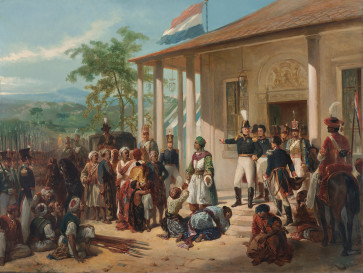Popular Reads
Top Results
Can't find what you're looking for?
View all search resultsPopular Reads
Top Results
Can't find what you're looking for?
View all search resultsUse of zoning bylaw urged to protect environment
Scholars, community leaders, religious figures and environmentalists on Monday demanded that Bali Governor Made Mangku Pastika immediately implement a controversial zoning bylaw that offers protections for key environmental sites
Change text size
Gift Premium Articles
to Anyone
S
cholars, community leaders, religious figures and environmentalists on Monday demanded that Bali Governor Made Mangku Pastika immediately implement a controversial zoning bylaw that offers protections for key environmental sites.
The implementation of the bylaw on zoning and spatial arrangements has been hampered for months, after being unanimously rejected by the island’s regents and mayor who fear it would sever the flow of investment to their respective regions.
Supporters demanded that the bylaw take effect immediately to save the island from further environmental damage caused by uncontrolled development and a chaotic zoning system.
“We hope the governor will immediately issue a decree as a technical guideline for the enforcement of the bylaw with a clear timeline. The key now is in your hands,” Made Bakta said.
Bakta is Udayana University’s rector and spokesman of the Balinese People’s Alliance (AMB). The alliance has spearheaded a popular campaign against moves by the regents and the Bali Legislative Council to revise the bylaw.
The bylaw offers stronger protections for the island’s greenbelts, shorelines and ravines.
It also adopts the 1994 Hindu Council bhisama (religious edict) stipulating that no tourist facility be built within 5 kilometers of any major temple on the island.
Moreover, it is also the first bylaw that would punish a government official, including a regent, with prison time if he is found guilty of breaching the zoning and spatial arrangement requirements.
Mangku Pastika is an ardent supporter of the bylaw. However, the existing law on regional autonomy gives power and authority to the regents and mayor.
Without strong support from them, any bylaw issued by the Bali administration could amount to nothing.
Since being ratified in 2009 by the Bali Legislative Council, the same council that later turned its back on the bylaw, it has drawn strong opposition from the regents, some communities and investors.
The regents eventually succeeded in convincing the Bali Legislative Council to establish a special committee tasked with revising the bylaw.
Last November, members of the special committee openly declared that the bhisama would be dropped from the revised version of the bylaw, allowing investors to build inside the sacred zones.
The council was condemned by many Balinese, including respected and influential high priests who warned that dire consequences await those who dare to disrespect a bhisama. The council caved in to public pressure and the special committee adjourned deliberations over the revision.
“We strongly refused the effort to revise the bylaw. Let’s implement the bylaw first. For us, it is very irrational to say that the bylaw couldn’t be implemented before we even tried to do it,” Bakta said.
Putu Wirata Dwikora from the Hindu Parisadha religious council said that the revision of the bylaw was illegal. According to the 2006 Law on Spatial Zoning, revisions can only be made five years after the bylaw was enacted.
The governor responded positively to the group’s opinion and said that the provincial administration has started the process of drafting the technical guidelines for the enforcement of the bylaw.










